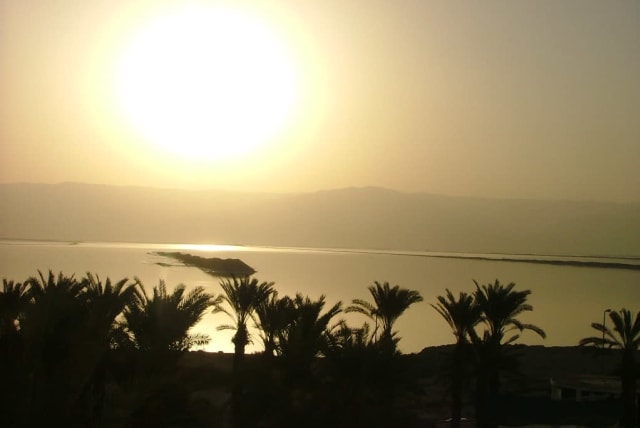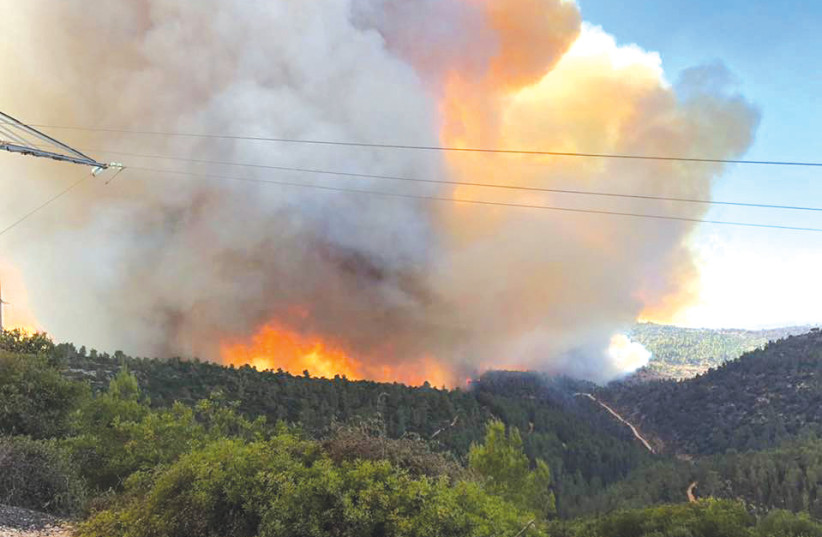Two heat waves may strike Israel in summer, cause increased death

Israel may experience two severe heat waves this summer, with temperatures hitting as high as 49 degrees C (120 degrees F), according to the Defense Ministry.
At least two severe heat waves, each lasting three to four days, could strike Israel over the summer and lead to increased mortality, according to a prediction analysis report published Sunday by the Defense Ministry’s National Emergency Management Authority (NEMA) and the Israel Meteorological Service.
Specifically, the report said, temperatures could reach 49° C (120° F) between June and September, resulting in up to an 8.5% increase in mortality. Moreover, the average hospitalization due to cardiovascular disease would increase between 10% and 15%. In addition, peak electricity consumption would rise by as much as 10%, and the country would be at extreme risk of fires.
There could also be higher than usual heat in May and October, but the months are expected to be milder than in the summer, according to the report.
A heat wave is defined as a long period of hot weather that affects large parts of a country’s population or large areas within a country. Heat waves usually peak for three to four days but can last as long as 10 days with temperatures warmer than usual.
How bad will the heat waves be?
"The State of Israel is preparing for various emergencies, crises and disasters, which may endanger human life, cause severe damage to daily life, national infrastructures, security capabilities, and significantly harm national resilience," a release explained.
“NEMA is responsible for understanding threats in the civilian sphere and creating reference scenarios for preparing government ministries and emergency bodies accordingly. In addition, due to the increase in climate-related events in recent years, NEMA and the Israel Meteorological Service have formulated reference scenarios for extreme weather like floods, fires, and the new reference scenario for extreme heat waves.”
NEMA said that the country would need to prepare for these heat waves early in collaboration with relevant authorities to reduce damage.
The authority added that there could be two heat waves within one month, with only a short break between them. It said the 49° peak temperatures should only be expected in the Jordan Valley and Arava region. Still, coastal plans could reach as much as 35° with more than 50% humidity, mountainous areas up to 42° and the Negev Desert and the northern valleys up to 44°.
“The scenario is a binding document and forms the basis for the preparation of government ministries and planning and operative bodies,” explained NEMA Director Brig. Gen. (Res.) Yoram Laredo.
"The attribution scenario we are distributing to government ministries showcases the implications of a serious event. It describes the periods of the year prone to heat waves, their expected frequency, heat maps, peak temperatures expected at any point in Israel and the implications to prepare for - from an increase in electricity consumption and the risk of huge fires to a significant increase in morbidity and mortality."
Scientists worldwide have warned that countries must collectively cut their greenhouse gas emissions in half over the next 10 years to avoid dangerous warming later in the century.
Two years ago, Israel set a goal to reduce greenhouse gas emissions by 27% from 2015 levels by 2030 and by 85% by 2050.
The Environment and Climate Change portal is produced in cooperation with the Goldman Sonnenfeldt School of Sustainability and Climate Change at Ben-Gurion University of the Negev. The Jerusalem Post maintains all editorial decisions related to the content.
Jerusalem Post Store
`; document.getElementById("linkPremium").innerHTML = cont; var divWithLink = document.getElementById("premium-link"); if (divWithLink !== null && divWithLink !== 'undefined') { divWithLink.style.border = "solid 1px #cb0f3e"; divWithLink.style.textAlign = "center"; divWithLink.style.marginBottom = "15px"; divWithLink.style.marginTop = "15px"; divWithLink.style.width = "100%"; divWithLink.style.backgroundColor = "#122952"; divWithLink.style.color = "#ffffff"; divWithLink.style.lineHeight = "1.5"; } } (function (v, i) { });

